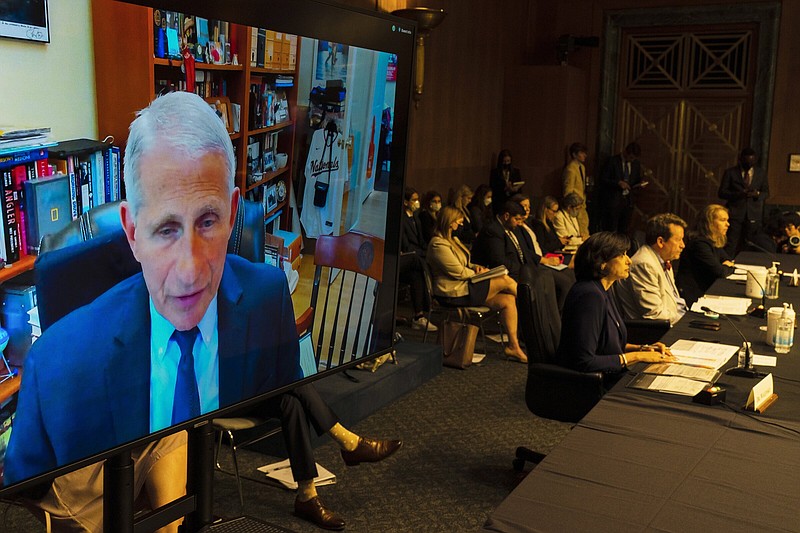WASHINGTON -- Dr. Anthony Fauci, the nation's top infectious-disease expert, says his covid-19 recovery is an "example" for the nation on the protection offered by vaccines and boosters.
Speaking during a White House briefing, Fauci, 81, said he began experiencing virus symptoms June 14 and tested positive a day later. He was prescribed on June 15 antiviral drug Paxlovid, which has proven to be highly effective at preventing serious illness and death from covid-19.
"I'm still feeling really quite fine," Fauci said Thursday, as the administration emphasized the protection offered by vaccines to people of all ages.
"I think I'm an example, given my age, of what we're all talking about today," Fauci said. "I'm vaccinated. I'm doubly boosted. And I believe if that were not the case, I very likely would not be talking to you looking as well as I look, I think, right now. So all is well with Fauci."
MILLIONS SAVED
Nearly 20 million lives were saved by covid-19 vaccines during their first year, but even more deaths could have been prevented if international targets for the shots had been reached, researchers reported Thursday.
The global vaccination campaign effort, though marred by persisting inequities, prevented deaths on an unimaginable scale, said Oliver Watson of Imperial College London, who led the new modeling study.
The findings "quantify just how much worse the pandemic could have been if we did not have these vaccines," Watson said.
The researchers used data from 185 countries to estimate that vaccines prevented 4.2 million covid-19 deaths in India, 1.9 million in the United States, 1 million in Brazil, 631,000 in France and 507,000 in the United Kingdom.
An additional 600,000 deaths would have been prevented if the World Health Organization target of 40% vaccination coverage by the end of 2021 had been met, according to the study published Thursday in the journal Lancet Infectious Diseases.
The main finding -- 19.8 million covid-19 deaths were prevented -- is based on estimates of how many more deaths than usual occurred during the time period. Using only reported covid-19 deaths, the same model yielded 14.4 million deaths averted by vaccines.
The London scientists excluded China because of uncertainty around the pandemic's effect on deaths there and its huge population.
The study has other limitations. The researchers did not include how the virus might have mutated differently in the absence of vaccines. And they did not factor in how lockdowns or mask wearing might have changed if vaccines weren't available.
Another modeling group used a different approach to estimate that 16.3 million covid-19 deaths were averted by vaccines. That work, by the Institute for Health Metrics and Evaluation in Seattle, has not been published.
In the real world, people wear masks more often when cases are surging, said the institute's Ali Mokdad, and 2021's delta wave without vaccines would have prompted a major policy response.
"We may disagree on the number as scientists, but we all agree that covid vaccines saved lots of lives," Mokdad said.
The findings underscore the achievements and the shortcomings of the vaccination campaign, said Adam Finn of Bristol Medical School in England, who like Mokdad was not involved in the study.
"Although we did pretty well this time -- we saved millions and millions of lives -- we could have done better and we should do better in the future," Finn said.
Funding came from several groups including the WHO; the UK Medical Research Council; Gavi, the Vaccine Alliance; and the Bill and Melinda Gates Foundation.
Information for this article was contributed by Carla K. Johnson, Havovi Todd and staff members of The Associated Press.
